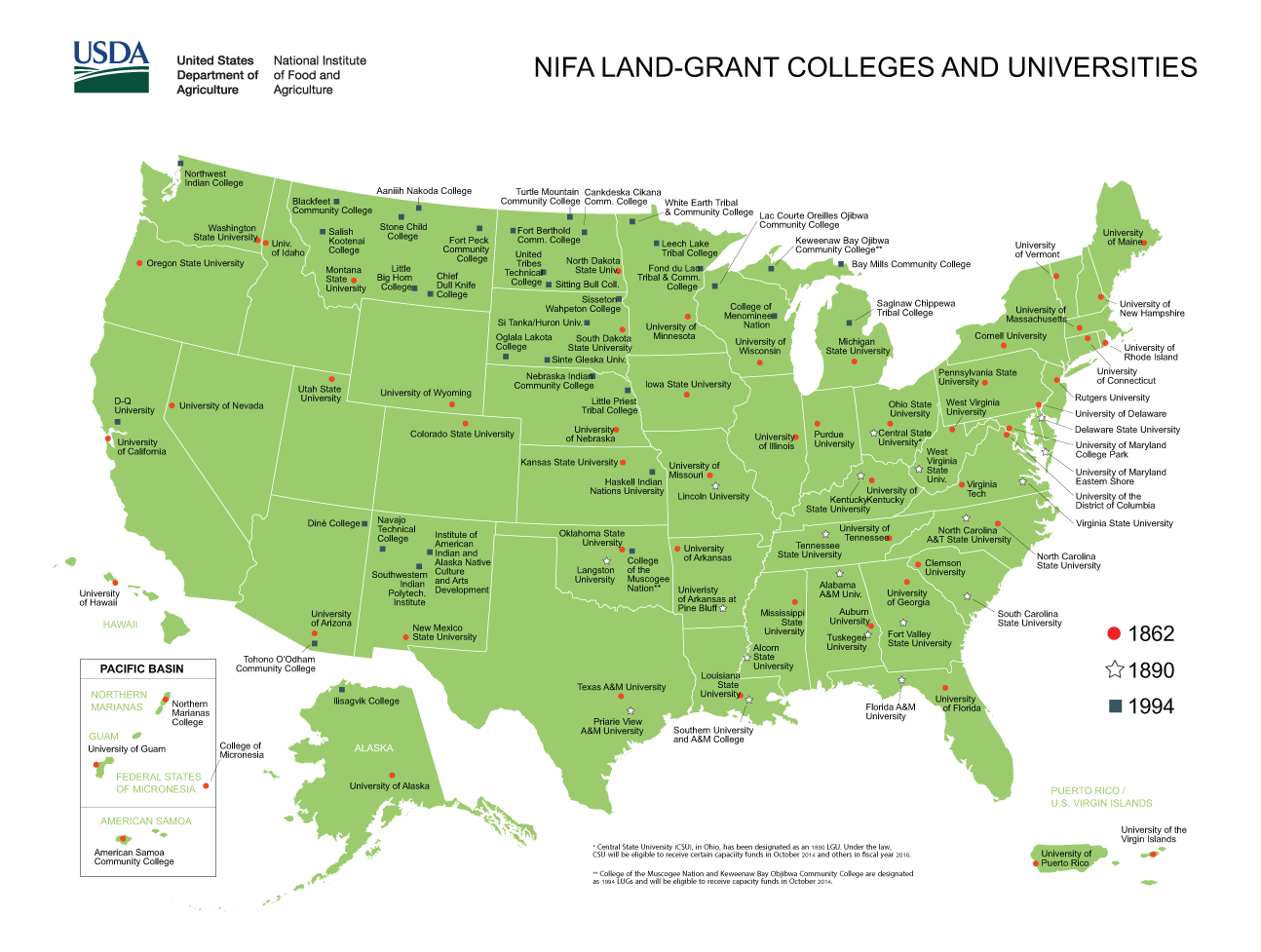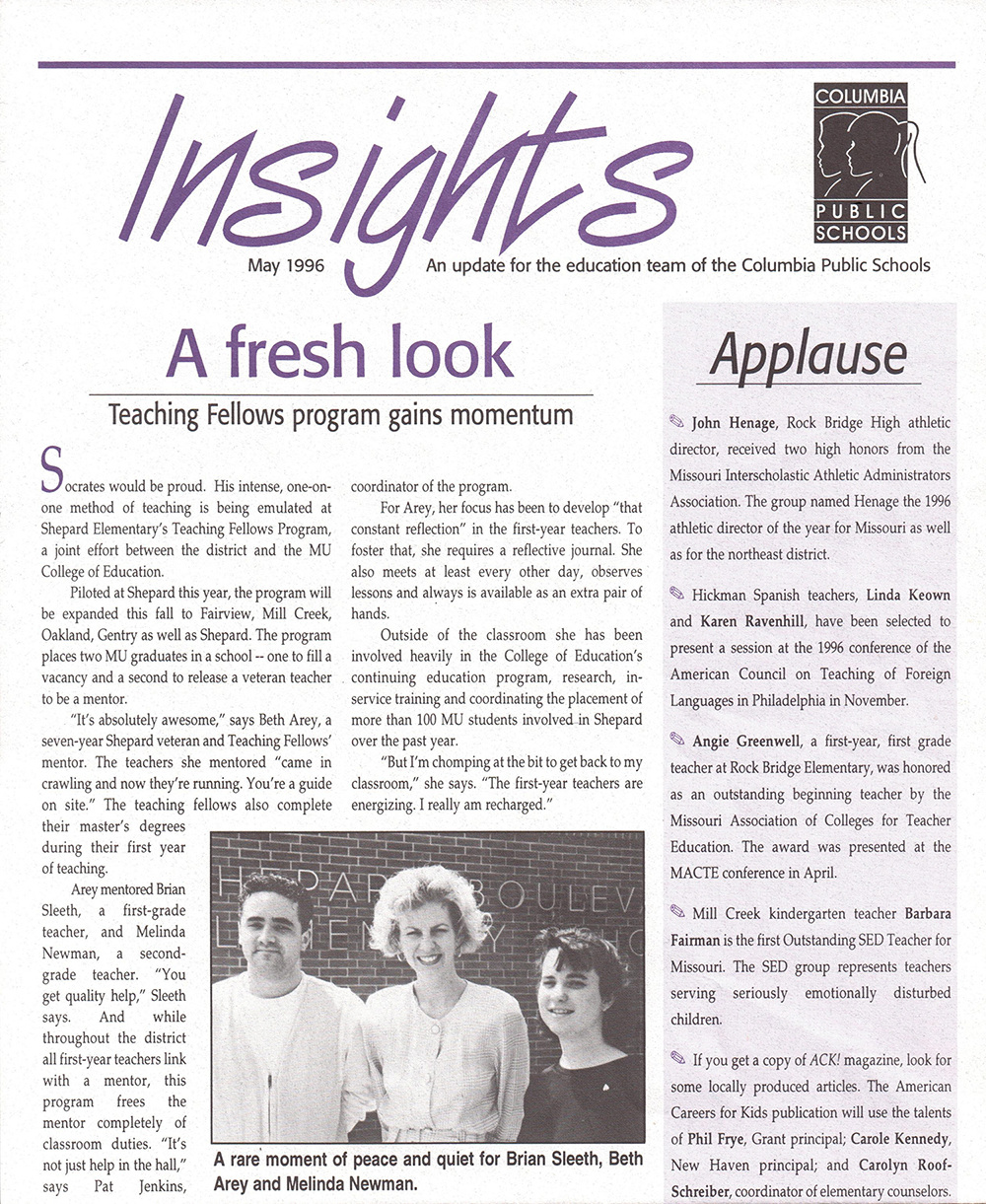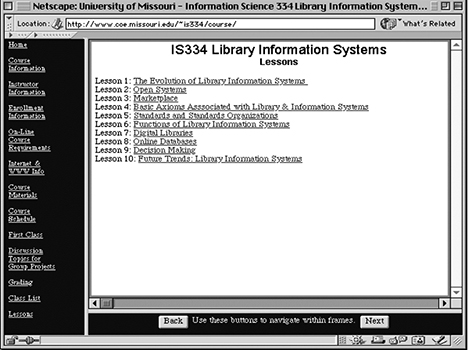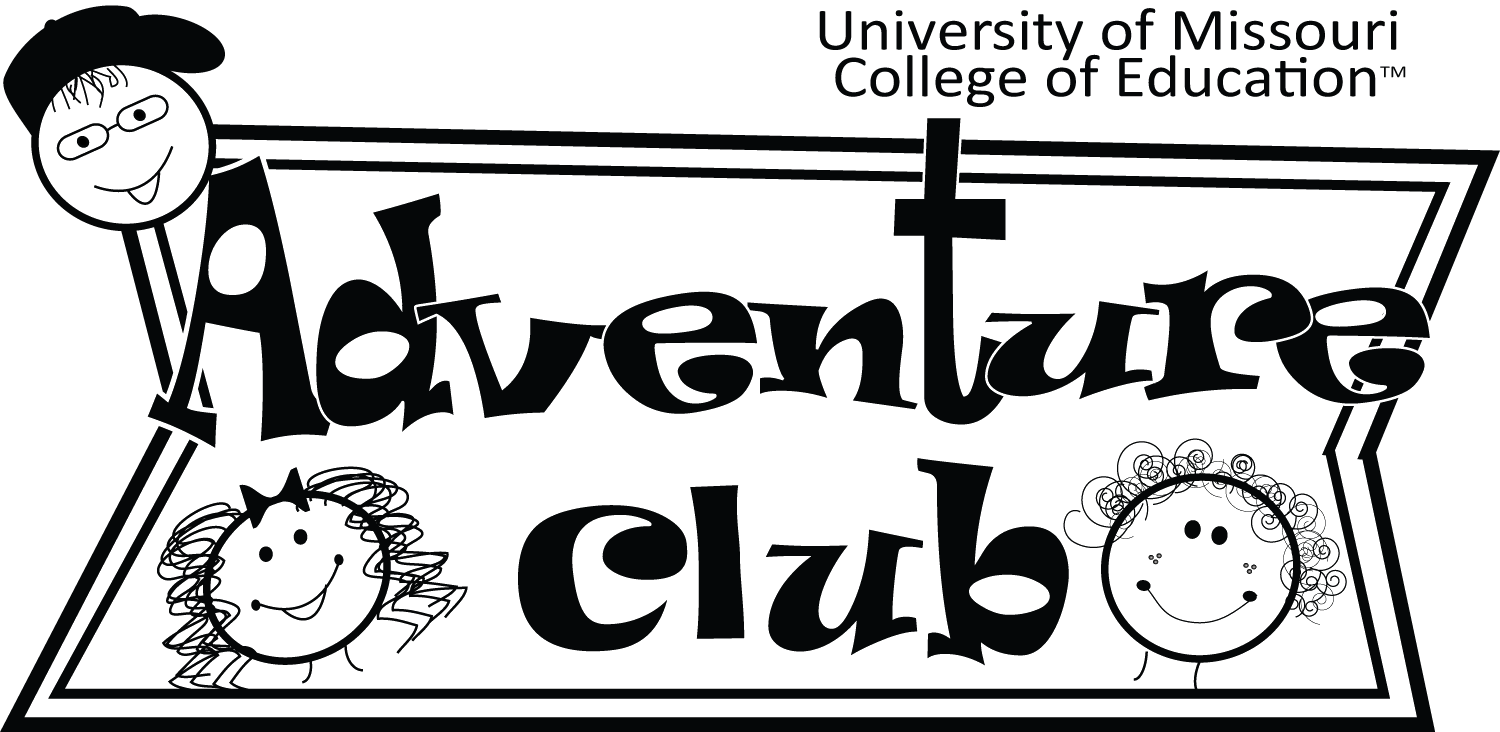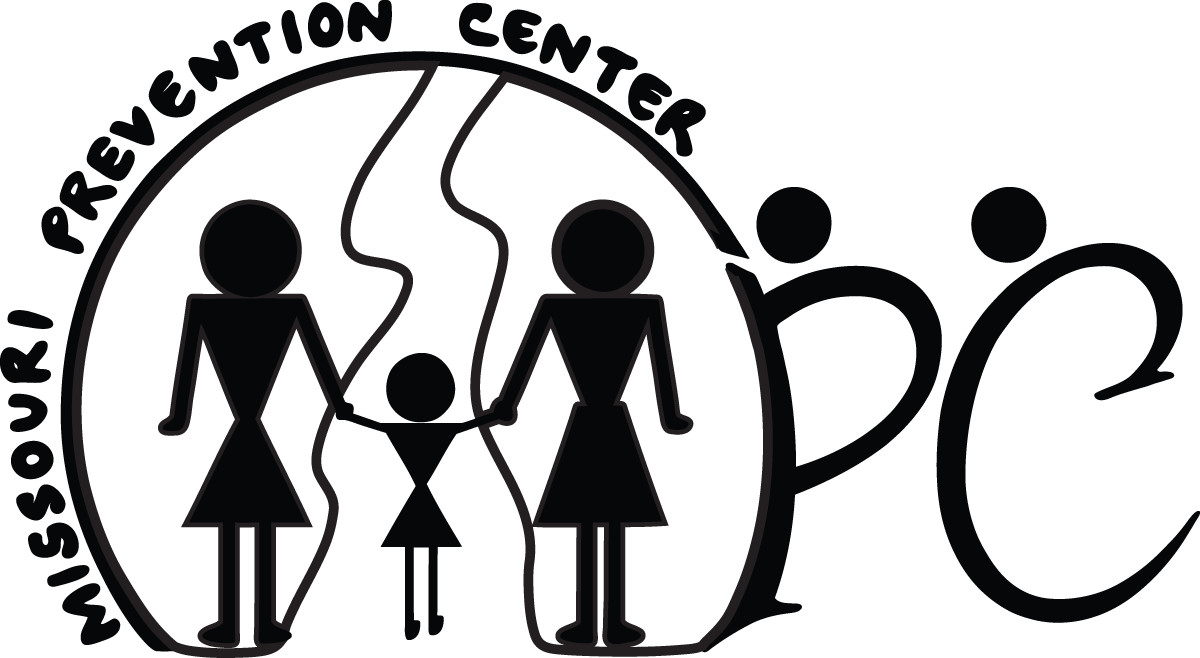The University of Missouri College of Education is proud to celebrate 150 years of investing in excellence in education, research, and outreach. We recognize the rich history of our College as the foundation on which we continue to improve and leave a legacy for the next 150 years. Through the establishment of The Geyer Act, by the Missouri legislature, and thanks to the efforts and generous contributions of 900 Boone County citizens, the University is the first public higher education institution west of the Mississippi River. The University of Missouri was one of the first state universities to establish normal instruction for educating teachers at a collegiate level. It had 3 units: 1) Normal School for instructing teachers 2) Preparatory school for preparing students for university admission 3) Model school to demonstrate ideal teaching methods for students enrolled in the Normal School Located on the present Missouri State Teachers Association site, it served as Columbia’s only high school with a total enrollment of 150 pupils and two rooms. It closed in 1870. These Education students paved the way for admission to other units in 1872. E.L. Ripley of Michigan. Mary Louise “Lulie” Gillett, graduated from the Normal School. Gillett Residence Hall is named in her honor. MU’s first female Dean appointed to the College of Normal Instruction (i.e., Education). Grace C. Bibb was a writer, educator, and feminist forerunner. She contributed to the advancement of education in America through her tireless efforts to establish and further the professional education of teachers. University President Richard Henry Jesse on his aspirations for the Teachers College: “It is the purpose of the University to make this Teachers College better than any Department of Education now in existence in any American State University. This would not be a very difficult task. We do not expect to stop in our ambition here. We aim to make it as good a teachers college as can be found in the Union. This will involve an expenditure of much money and a thorough reorganization.” as an independent, degree-granting division of the University. “…The greatest single need of the teachers college today is a building in which to offer courses primarily for teachers, and in which the work of observation and practice may be carried on.” MU joined the American Association of Universities and became Missouri’s Flagship Institution. Established in 1900 by fourteen American universities, three public and eleven private, the AAU sought to establish common standards for doctoral education. Regarded with disdain by European universities at the time, this was a means of asserting the quality of American graduate education. Pi Lambda Theta Education Honorary founded at MU to advance education as a profession. An international professional organization for educators, it was established by merger of three honorary organizations that existed at Indiana University, Columbia University and MU. Now an international organization, it focuses on bringing together top leaders, thinkers, and doers in education to collaborate and inspire one another. Mizzou pioneered K-12 distance education,through MU Extension, by providing correspondence classes to students in rural areas of the United States and beyond. John and Evelyn Dewey, renowned psychologists, devoted an entire chapter in their book, Schools of Tomorrow, to the Elementary Lab School due to its reputation as one of the top ranking experimental progressive schools in the country. First paper in the world to discuss using computers in libraries, published by Ralph H. Parker, Director of MU Libraries from 1947-1968. He was the inaugural Dean of the School of Library and Informational Science from 1966-1974, which is now part of the College of Education as the School of Information Science and Learning Technologies. Statewide testing services founded for the purpose of providing assessments to high school students in Missouri. For several decades, the office functioned primarily as a University-based arm of the state’s Department of Elementary and Secondary Education (DESE), later becoming the Assessment Resource Center. University Laboratory School, now known as Townsend Hall, constructed. The building was named in A. Sterl Artley, founder of the International Reading Association and known for the famous Dick and Hill Hall was named for A. Ross Hill, Dean of the College of Education 1903-1907, and President of the University 1908-1921. Counseling Psychology program receives American Psychological Association (APA) accreditation. One of the first counseling psychology programs to receive this recognition, it has been continuously accredited since 1953. It moved from the College of Arts and Science to the College of Education in 1998. Lois Knowles (BS Ed 1931, MA 1931, PhD 1941) along with two colleagues changed the way math was taught when they published a textbook series called “Seeing Through Arithmetic,” which used a pedagogical technique that stressed the importance of understanding mathematical concepts. The only organized study abroad program of its kind in the University, and coordinated with the University of Reading in England, the program was one of the few in the country devoted to the study of comparative education. under the leadership of Dean Bob Woods. Norm Gysbers was awarded a United States Office of Education grant to work with states to develop fully comprehensive career guidance programs for schools. Gysbers pioneered the comprehensive program model and is known today as the “father of school guidance programs.” Due to budget and space limitations, the junior and senior high portions of the Lab School closed and practice teaching moved to the Columbia Public Schools setting. The west door of Townsend Hall marks what was once the entrance to this portion of the Lab School. Dr. Carolyn Dorsey, Associate Professor of Higher Education (now Educational Leadership & Policy Analysis) became the Black Studies Program Coordinator for MU. Following national trends among colleges and universities, regular public schools were more widely used as settings for teacher preparation. The east door of Townsend Hall marks what was once the entrance to this portion of the Lab School. School Psychology became available as an emphasis area. Under the leadership of Dean Bob Woods, the College formed a long term relationship with Prince of Songkla University in Thailand. Created by Dr. Jo Behymer, a four-time education alumna, the Education Ambassador Leadership Team represents and promotes the University of Missouri and the College of Education through coordinated recruitment and service activities. Dr. Mary F. Lenox became the first African American woman to hold the position of Dean at MU, for the School of Library and Informational Science. This School is now part of the College of Education as the School of Information Science and Learning Technologies. Adventure Club programming piloted at Grant Elementary School in Columbia, with the purpose of providing enrichment-based, before and after school care. The School of Library and Informational Science merged with the College of Education and became the School of Information Science and Learning Technologies (SISLT). Under the leadership of Dean Richard Andrews, the designs for the Townsend Hall renovations were made with flexible learning environments and team-teaching in mind. Originally part of the Department of Psychology in the College of Arts and Science, the program moved to the Department of Educational and Counseling Psychology within the College of Education. This multi-level computer lab, library, training facility, and gathering space for students, faculty, and staff is located inside Townsend Hall. The Joanne H. Hook Dean’s Chair in Educational Renewal and the Hook Center for Educational Leadership and District Renewal were established through a gift from Harold and Joanne Hook. Joanne graduated with a degree in elementary education in 1955; Harold earned his bachelor’s degree in business administration in 1953 and a master’s degree in accounting one year later. The MU Office of Charter School Operations strives to improve the quality and performance of Missouri charter schools by collaborating with stakeholders to achieve exceptional educational outcomes for all students. The first faculty endowed chair in the College was established through a generous gift from Richard Miller. In 2016, Susan Empson, Professor in the Department of Learning, Teaching, and Curriculum, was chosen as the Richard G. Miller Chair in Mathematics Education. Originally established in 1989, ParentLink offers parenting information and support to all Missourians and serves families and professionals across the state. As the University’s accredited pre-collegiate online and blended learning program, Mizzou K-12 is a global learning community with 8,500+ students from 135 countries and all 50 U.S. states. A culturally immersive six-week teaching internship, the Teach Abroad Program provides opportunities for experiential learning, development of critical thinking skills, and engaged global citizenship. The Dorsey Leadership Academy provides leadership opportunities and other programming for future teachers from underrepresented groups or those who are the first in their families to earn a bachelor’s degree. Originally part of the University of Missouri System, eMINTS is an educational program designed to equip educators with a focus on technology in the classroom, standards-based instruction and research-based teaching practices. The Bridge is a conversation space for students, faculty, and professional staff to develop and expand their cultural knowledge, awareness, and competencies. It is available for classes, meetings, presentations, or interactive discussions regarding a wide range of diversity and inclusion topics. Nureva Inc. Collaboration Room established, building on a long history of technological innovations. The Nureva room in 102 Townsend features the Nureva Span system, a 20-foot digital canvas that allows up to 22 people to work simultaneously, encouraging collaboration and facilitating long-term projects. The room is available for faculty, staff, and student use. “Imagine how many people made investments of time, intellect, and resources to transform our college through times of prosperity, scarcity, peace and war during the past 150 years. Through it all, education facilitated knowledge, opportunity, access, and transformation. The College of Education is proud to extend this legacy of innovation and impact at MU and beyond for the next 150 years.”
University of Missouri founded
1839
![This 1800s lithograph is one of the earliest images of campus. It is not attributed to an artist but is consistently cited as published in 1875. Of note are the long-vanished “Chalybeate Spring” pagoda, bottom center, and Normal [School] Building, lower right. Courtesy University Archives, C:0/47/2.](https://cehd.missouri.edu/wp-content/uploads/2018/01/c0472_Bx1_ff10_Lithograph-_ca1875.jpg)
Department of Normal Instruction (i.e., Education) established at MU
1867
First model school opened
1867
First women enrolled at MU
1867
First Education Professor appointed
1868
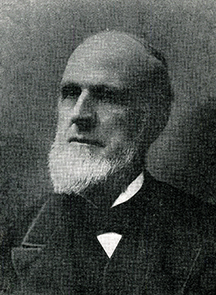
University Archives,
Collection C:8/23/1.
MU’s first female graduate, Mary Louise “Lulie” Gillett
1870
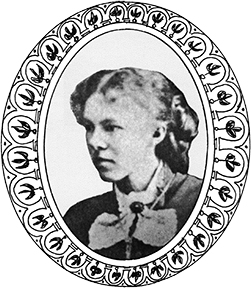
MU’s first female Dean appointed
1878
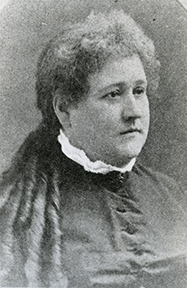
School administrator preparation began
1881
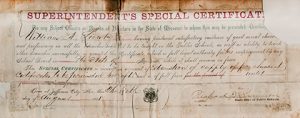
Cadets parade in front of Academic Hall
1885
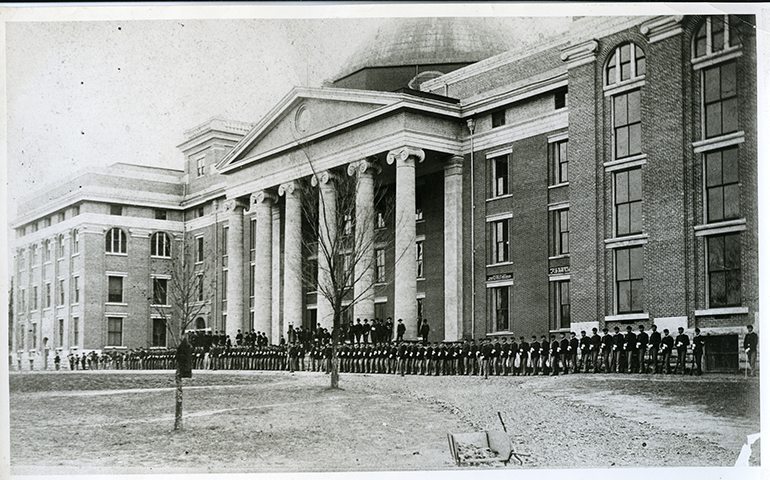
President Richard Henry Jesse on his aspirations for Teachers College
1903
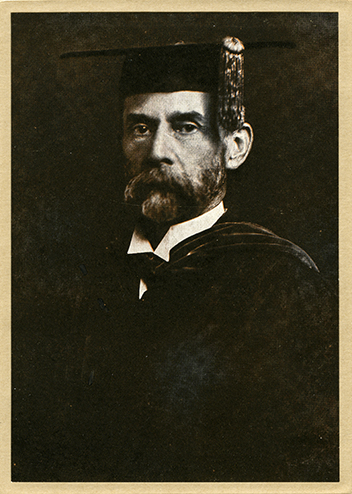
The College of Education organized
1903
University Lab School re-established
1904
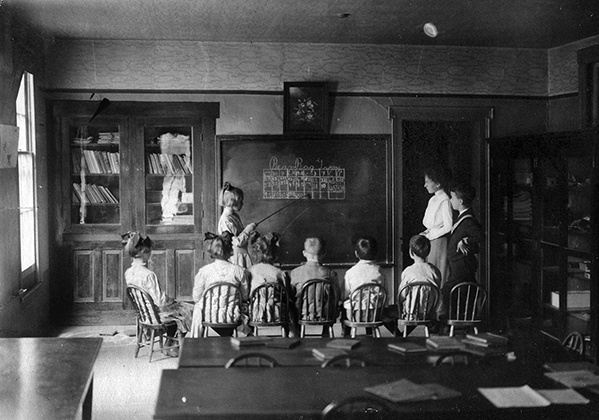
President Jesse stated…
1906
MU joined the American Association of Universities
1908
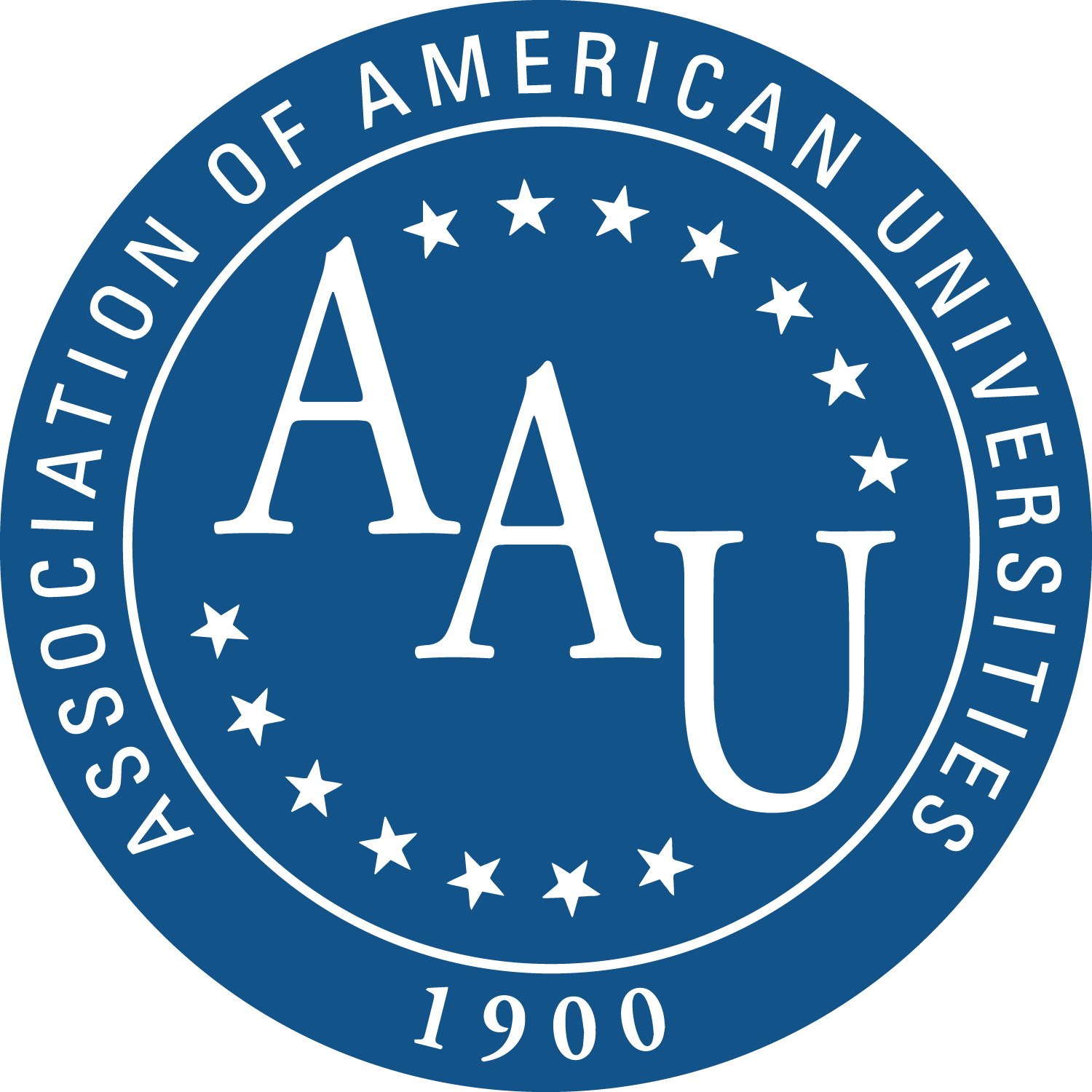
Pi Lambda Theta Education Honorary founded
1910
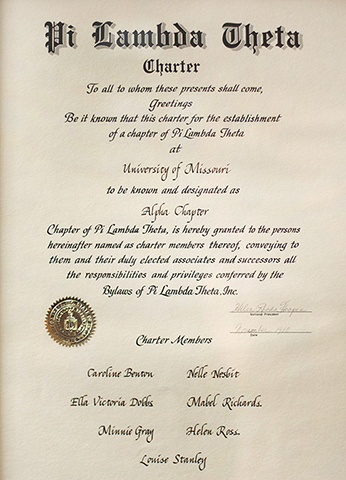
Phi Delta Kappa established
1911
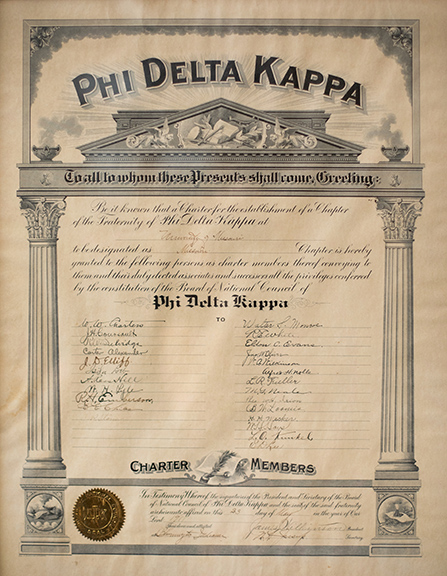
Mizzou pioneered K-12 distance education
1913
University Lab School cited
1915
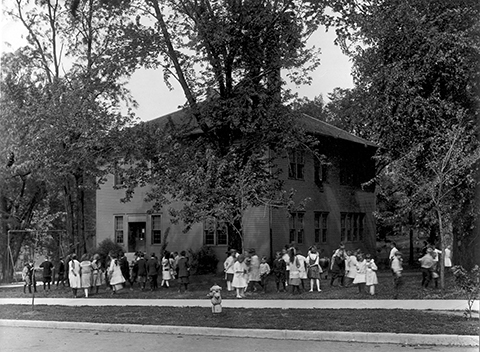
First paper in the world to discuss using computers in libraries
1930
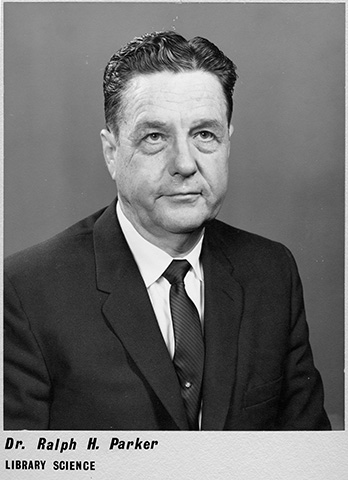
courtesy University Archives
Statewide testing services founded
1932
University Laboratory School, now known as Townsend Hall, constructed
1936
honor of Dr. Loran G. Townsend, Dean of College of Education from 1945-1963.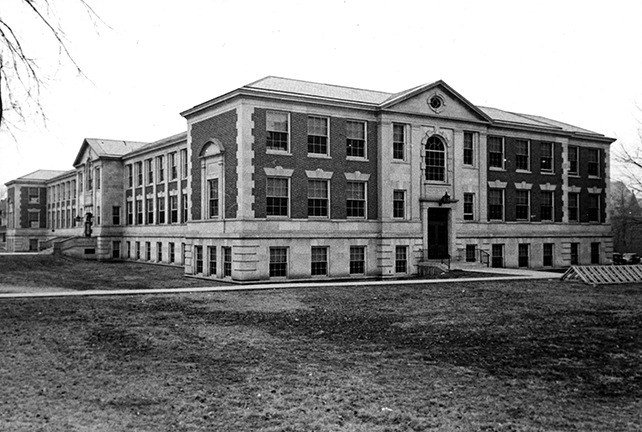
A. Sterl Artley joined MU’s faculty
1945
Jane series, joined MU’s faculty. More than a hundred million children learned to read from these books.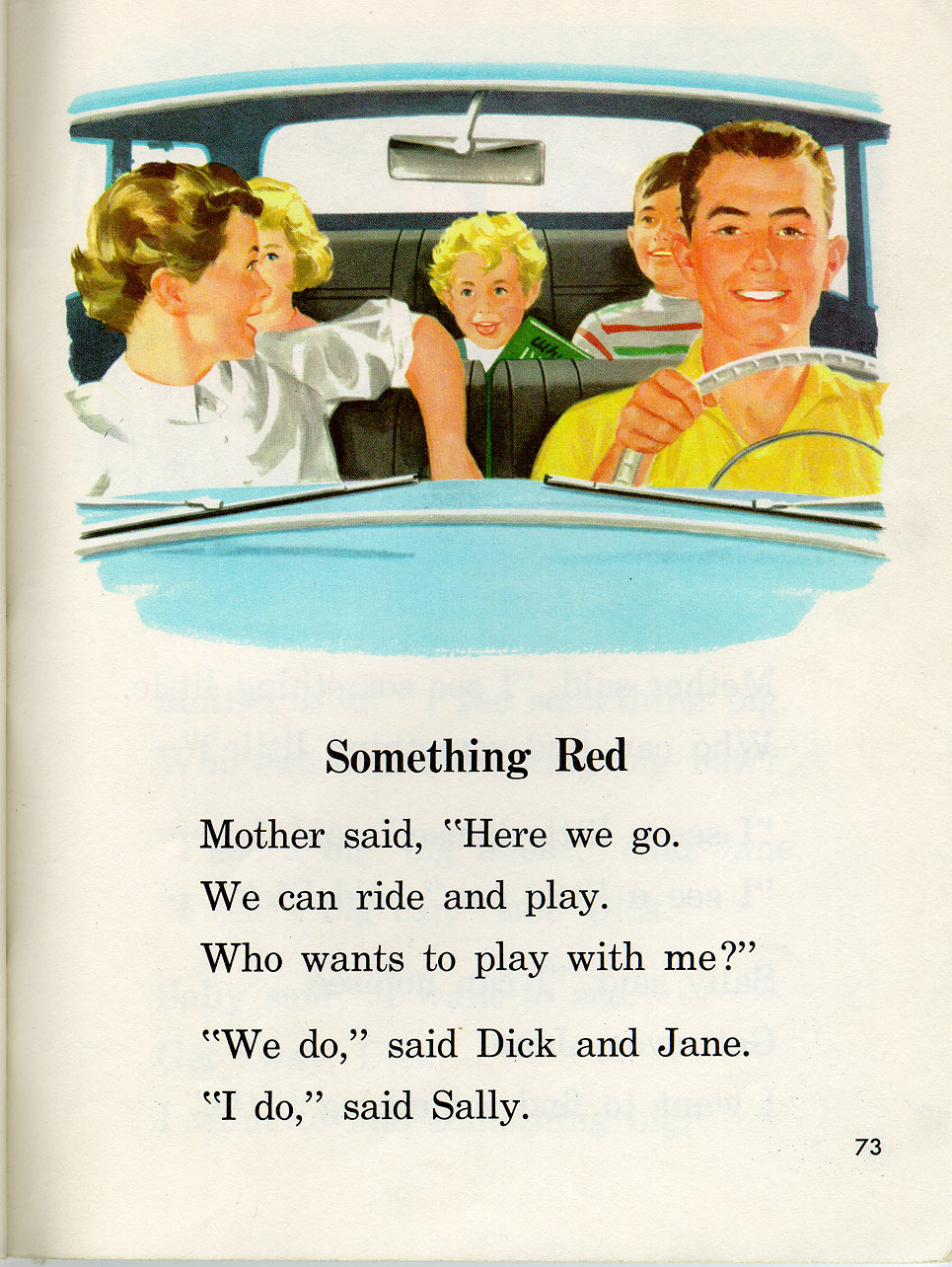
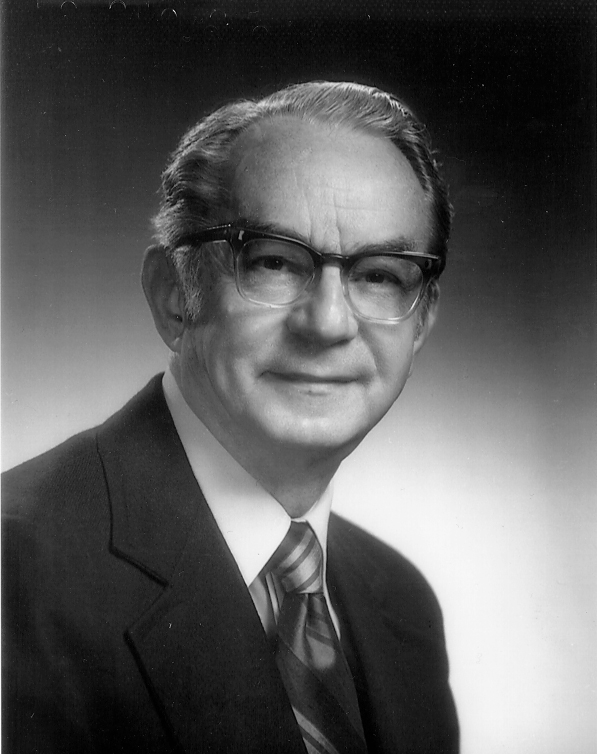
Hill Hall construction completed
1952
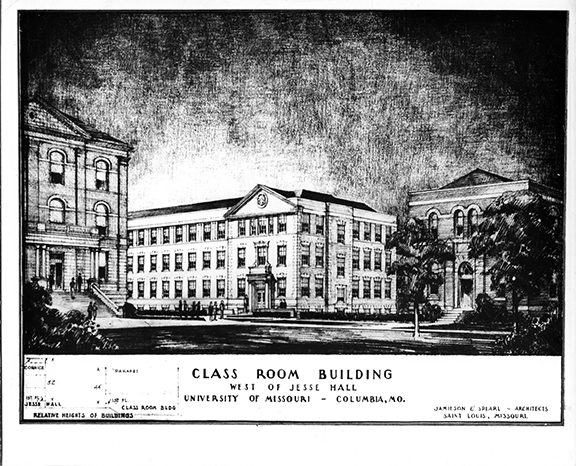
Counseling Psychology program receives APA accreditation
1953

Innovation in math education
1955
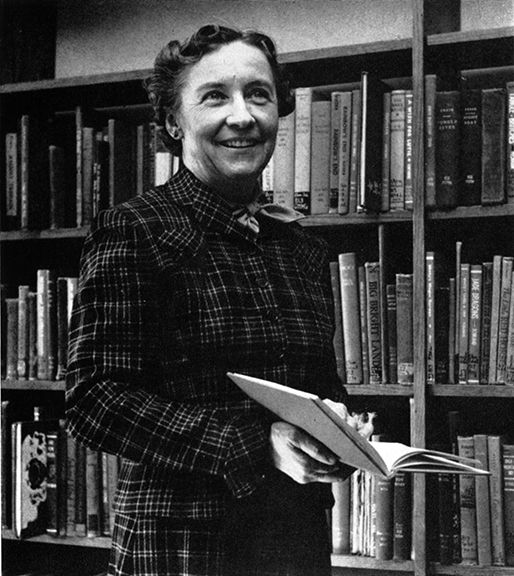
Study Abroad program established
1961

One of the first Special Education programs in the country created
1968
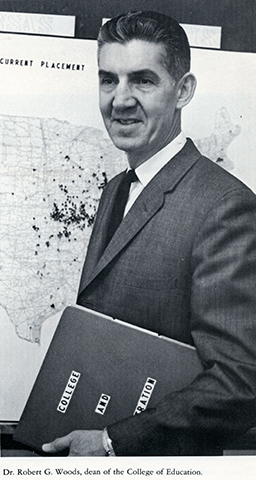
Pioneered the practice of school guidance counseling
1971
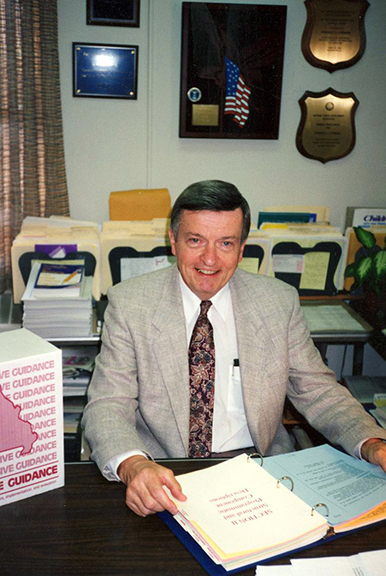
University High School closed as practice teaching moved to public schools.
1973
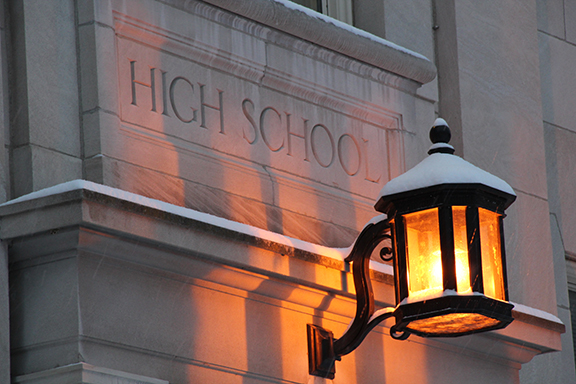
College of Education Professor hired as First African American Coordinator for Black Studies program.
1977
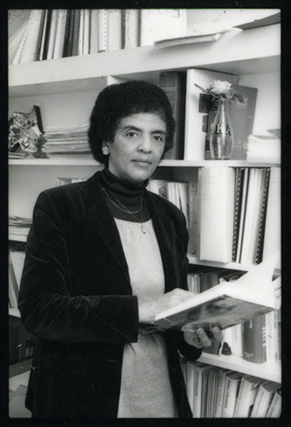
University Elementary School closed
1978
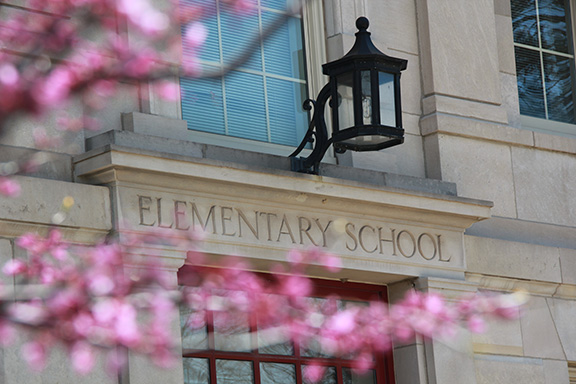
School Psychology program established
1978
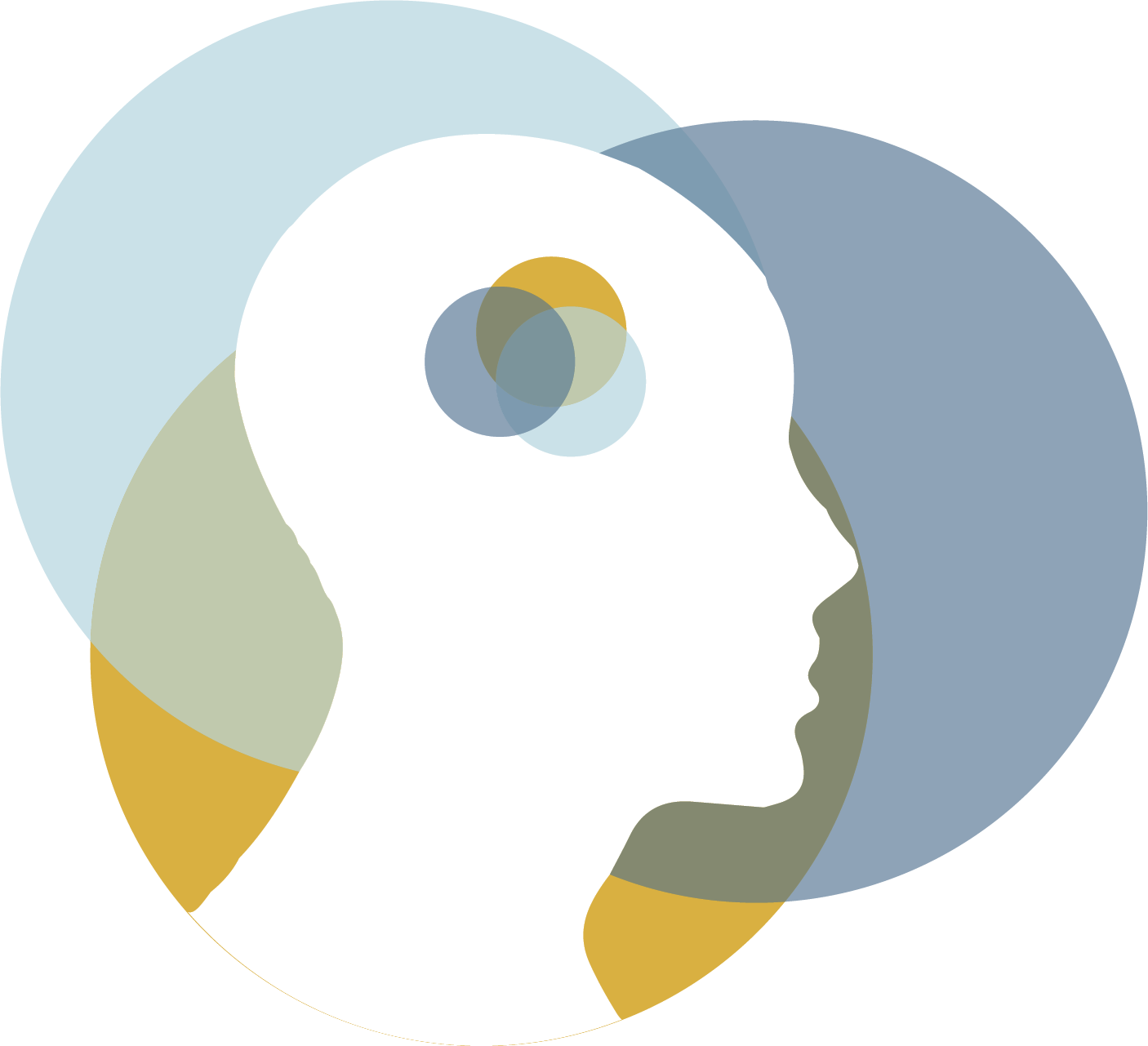
Established partnership with Ministry of Education in Thailand
1979
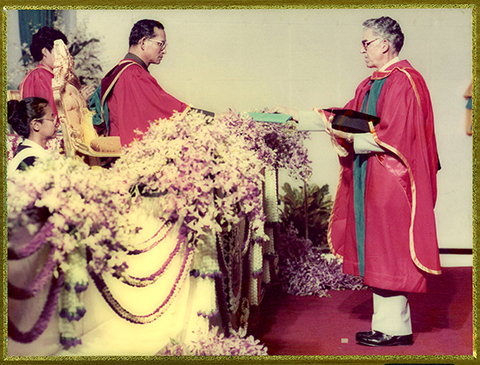
Education Ambassadors founded
1980
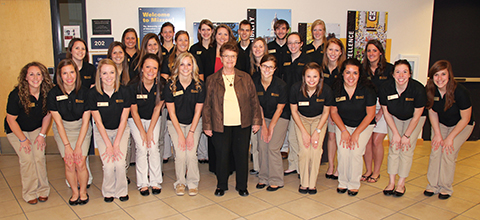
MU’s first African American Dean appointed
1984
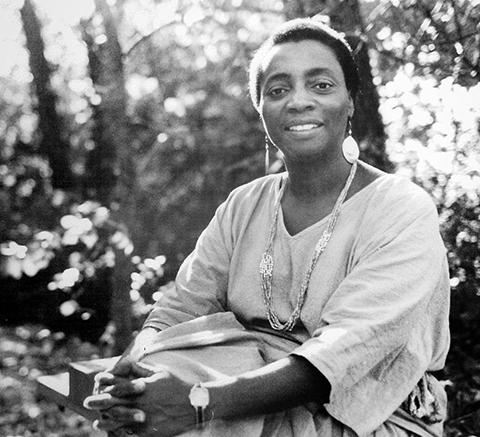
Adventure Club programming piloted
1986
The School of Library and Informational Science merged with the College of Education
1996
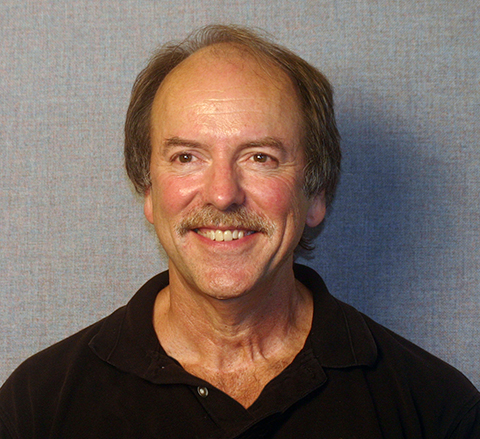
Townsend Hall renovation and expansion begins
1998
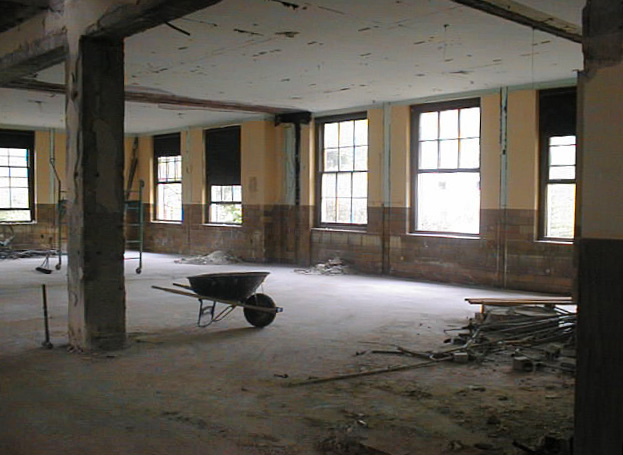
Counseling Psychology moves to the College of Education
1998
The Reflector opened
2000
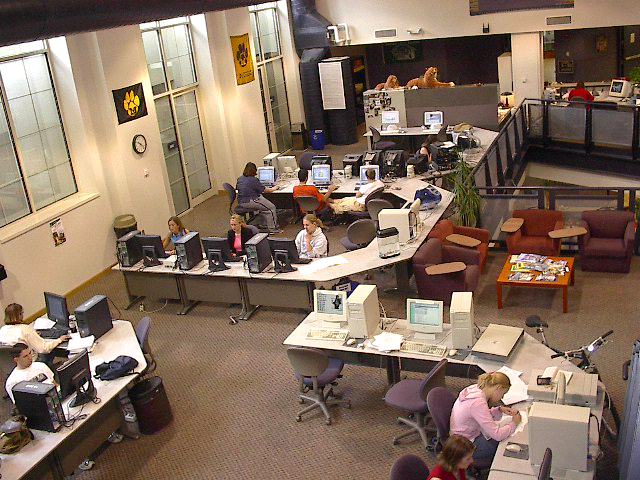
First endowed deanship at MU established
2006
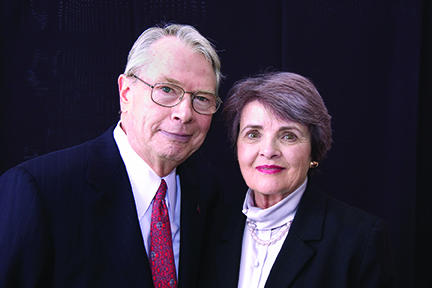
College of Education became a Charter School sponsor
2007
First faculty endowed chair in the College established
2008
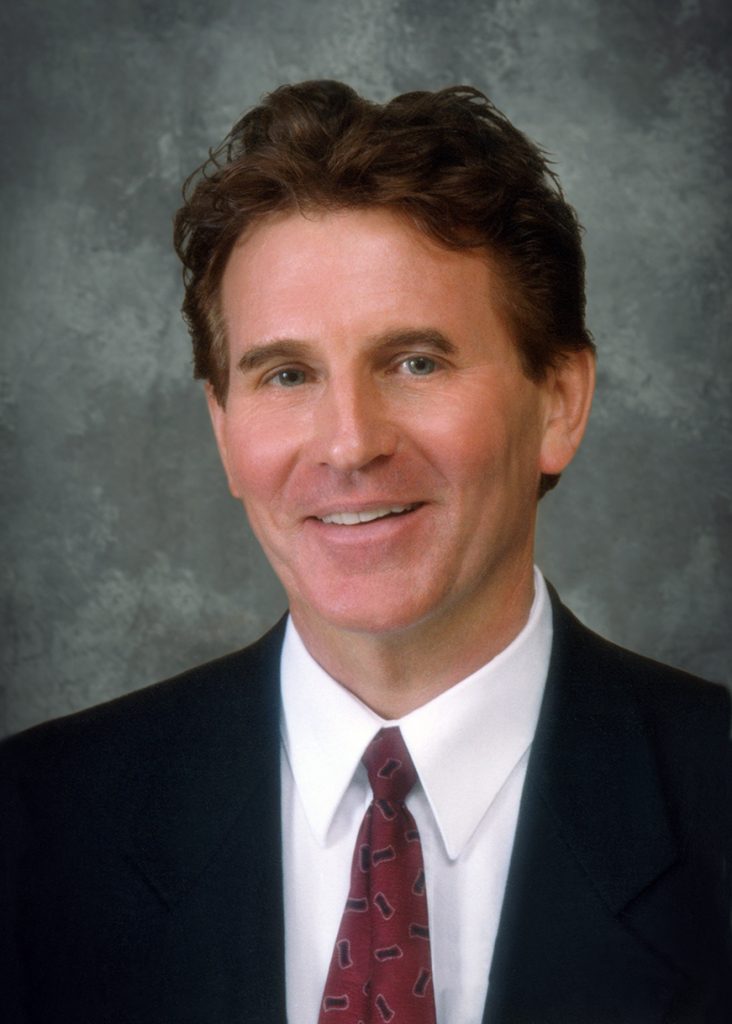
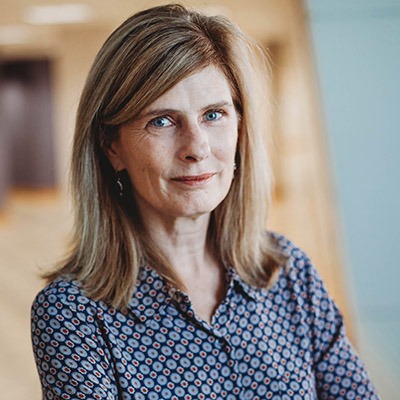
ParentLink moved from MU Extension to the College of Education
2009

MU High School moved from Mizzou Online to the College of Education
2011
Mizzou K-12 Online launched
2012
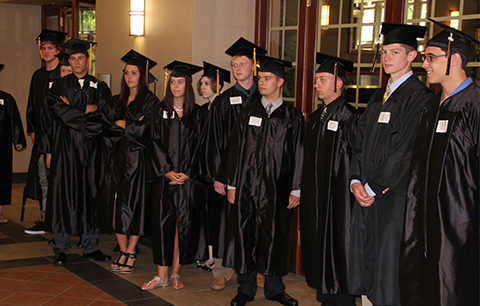
Teach Abroad program established for College of Education students.
2013
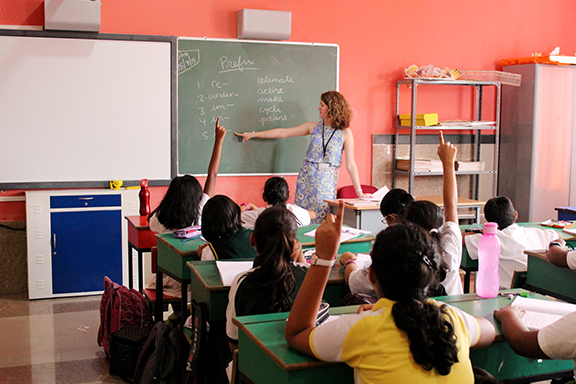
Dorsey Leadership Academy established
2013
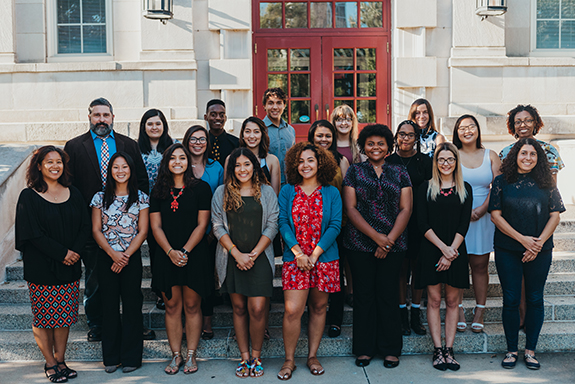
eMINTS National Center moved to the College of Education
2014

The Bridge opened in Townsend Hall
2015
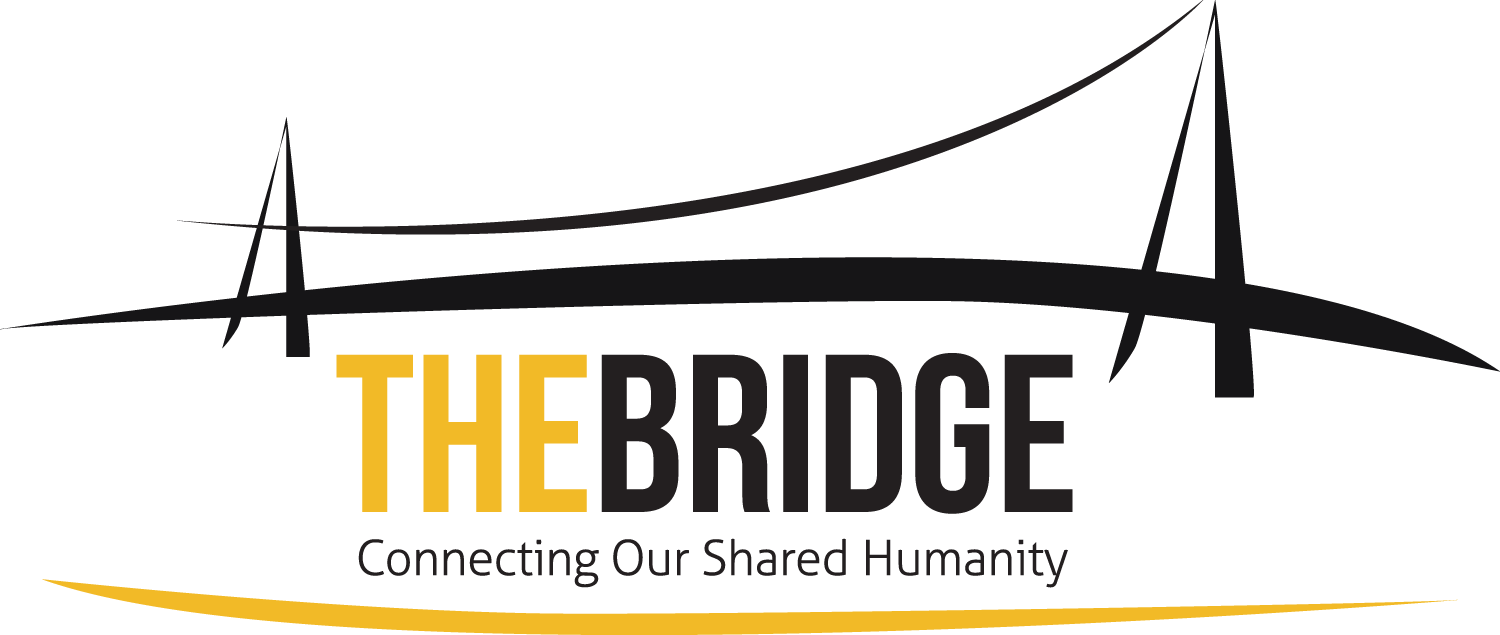
Nureva Inc. Collaboration Room established
2017
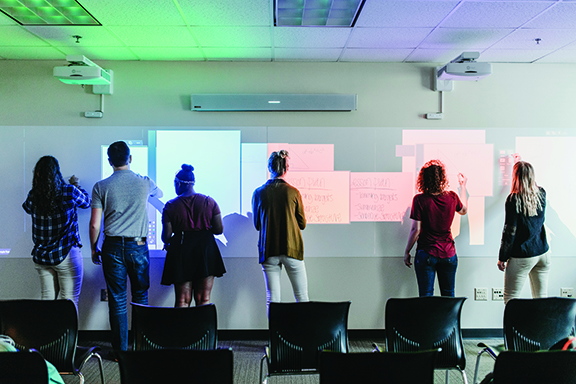
Dean Kathryn Chval stated…
2018
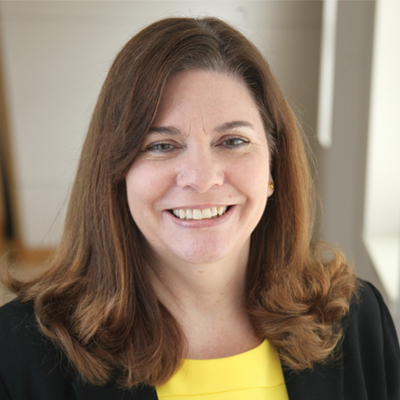
The University of Missouri College of Education is proud to celebrate 150 years of investing in excellence in education, research, and outreach. We recognize the rich history of our College as the foundation on which we continue to improve and leave a legacy for the next 150 years.
